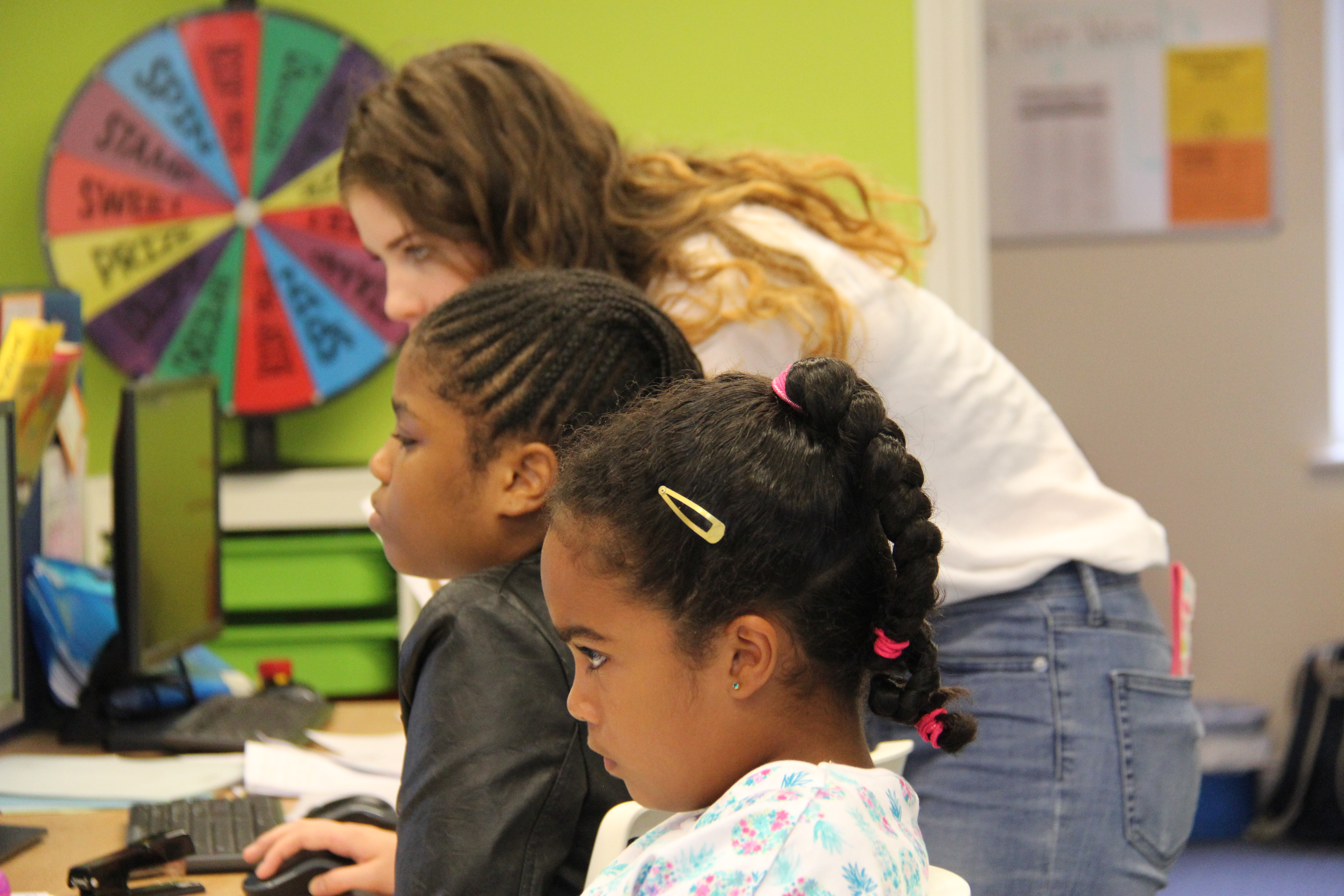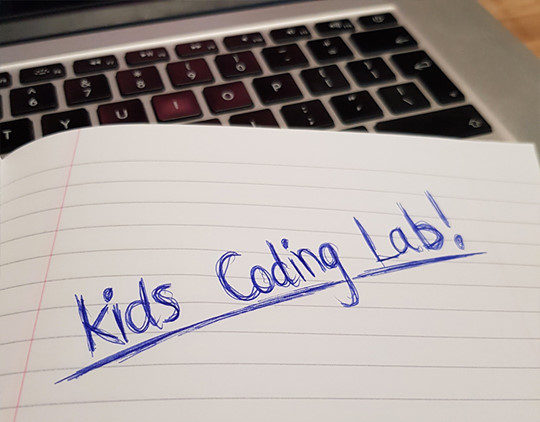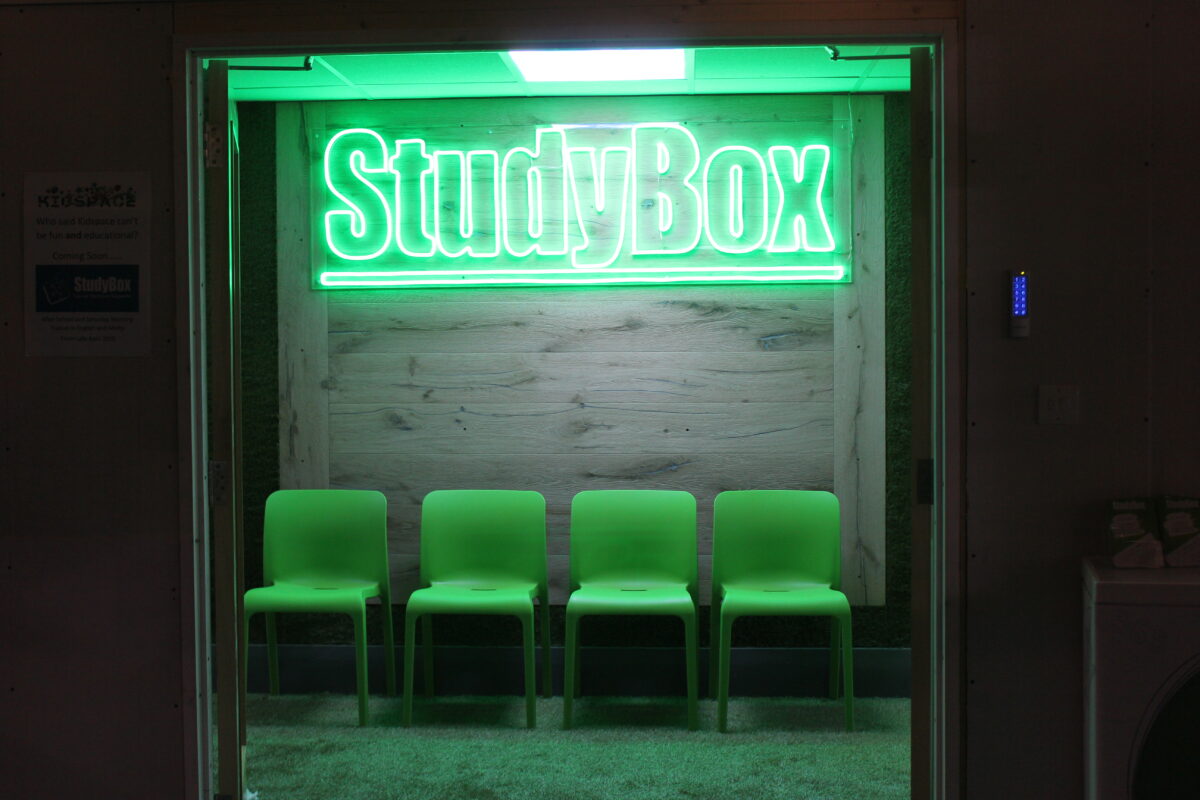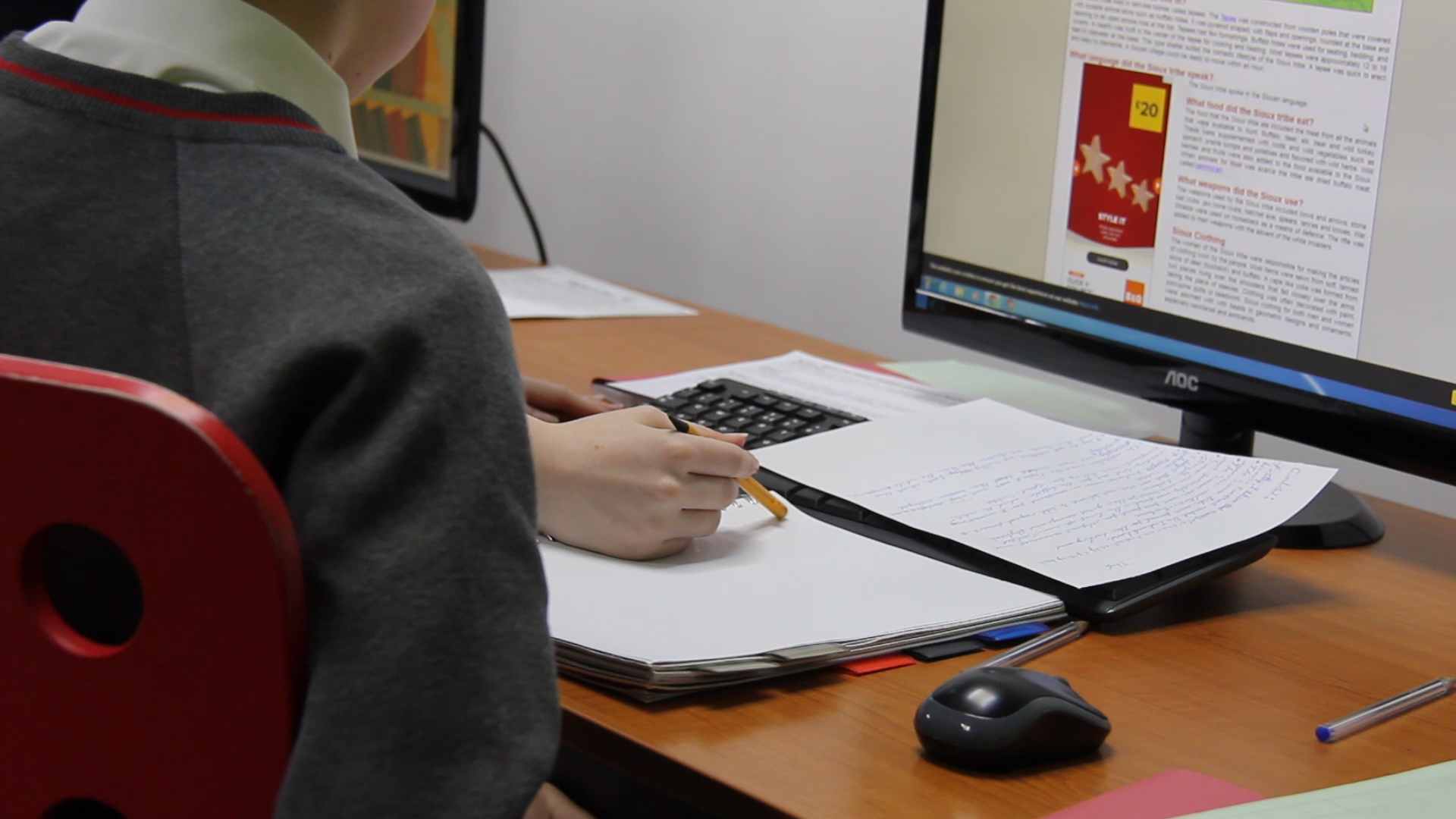Top 10 Tips to Prevent Summer Learning Loss

The summer holidays are a well deserved break after a year of hard work. Key exams like SATs, the Eleven Plus and GCSEs are challenging and take months of preparation, so the 6-week break is certainly rewarding. Read on for StudyBox’s Top 10 Tips to prevent the Summer Learning Loss.
During this long break, it is easy to forget the work learnt throughout the past academic year. This means it can be easy to fall behind when starting primary and secondary school again in September.
Sometimes secondary schools set work for new year 7 students in order to prepare them for their new chapter. But often, primary schools are unable to assign tasks due to teachers and classrooms changing when moving up a year.
Keeping younger children engaged in learning is especially important to promote growth. They are not yet at the age where they can participate in activities during the summer holidays like work experience or volunteering.
This is why revisiting learning tasks is vital for promoting growth and keeping up to date during the summer break. Summer tuition at StudyBox is open throughout the summer holidays, providing maths and English activities to keep children’s brains engaged and prevent the summer learning loss. We also offer an exciting Kids Coding Course, for those interested in technology, or want to try something new! We believe tuition is important to keep building upon what was learnt in the previous school year, as well as learning new material. Follow our top tips to prevent the summer learning loss.
Top 10 Tips to Prevent the Summer Learning Loss:
1. Tuition
Try our English, maths and coding sessions during the summer with StudyBox.
2. Reading
Find a gripping book and read in the sun!
3. Creative Writing
Creative writing is fun and develops literacy skills. Design some fun storytelling tasks with your child.
4. Practice Papers
Put aside some time for completing mock exam papers. You can set the papers in exam conditions or go through the papers with your child.
5. Arts & Crafts
Encourage children to draw and make art this summer. You can even go on daytrips to art galleries, many of them are free!
6. Cooking & Baking
Get hands-on with the kids and bake muffins or involve them with cooking the dinner, cooking is a skill for life.
7. Educative Games
Brain games are fun and rewarding. Print out Sudoku puzzles or play a game of scrabble together.
8. Learning Apps
There are hundreds of educational apps for children, available on smart phones, tablets and computers. If you don’t have access to these, why not take a trip to your local library and use the computer for educational online games. While you’re there, borrow a book, too!
9. Learn a Language
Take the 6 weeks off as an opportunity to learn a new language, or improve on a language that your child is learning. There are many ways to do this: downloading apps (like Duolingo), using the internet for videos or interactive websites, or purchase children’s reading books in the desired language.
10. Fun activities
Despite the importance of keeping the brain active during the long break, don’t forget to have fun! Keep active and go on a bike ride, go swimming and go on day trips, fly a kite – the activities are endless!
Sign up for summer tuition packages with StudyBox now!
Available from Monday 22nd July – Saturday 31st August 2019.
Book your free trial here.
Year 5: Summer Tuition Sessions for the Eleven Plus Exam

With just 63 days to go until the Eleven Plus exam, it is important to start preparation early in order for your child to achieve the best results.
At StudyBox, we are aware that preparing for the Eleven Plus can be a stressful time for students and their families.
That’s why StudyBox offers a Year 5 Eleven Plus mock package during the summer to prepare your child for their exam.
What is the Eleven Plus exam?
The Eleven Plus is taken by students to gain admission to a grammar school or secondary school that uses academic selection. Most students are aged 10 when they take the Eleven Plus. The exam is taken in the September of Year 6.
How can StudyBox help with Eleven Plus tuition?
This year the Eleven Plus exam takes place on Tuesday 17thSeptember 2019.
StudyBox works with Year 4 and 5 students in order to help them to secure a spot and their secondary school of choice.
The Year 5 mock package is a 3 hour session, available from Monday 22nd July until Saturday 31st August 2019.
The course:
● 1st hour: Completing a maths or English mock test.
● 2nd hour: Marking the paper with pupils, going over incorrect answers.
● 3rd hour: Revising and teaching new topics.
Our Eleven Plus course is based on the exams used by the schools in Sutton, Wallington, Croydon and Kingston.
Grammar schools that we prepare your child for:
Wallington County Grammar (boys)
Wallington High School for Girls
Sutton Grammar School (boys)
Nonsuch High School for Girls
Wilson’s School (boys)
We focus on the following areas:
Comprehension techniques:
- Reading for meaning
- Interpreting questions
- Long and short written answers
- Answers using short quotations
Grammar and Writing:
- Creative writing
- Common spelling errors & punctuation
- Common grammatical errors
- Vocabulary development
Maths:
- Problem solving
- Multi-step questions
- Handling data
- Multiple choice skills
Book your Eleven Plus package here.
Contact us for a free trial
You can request a free StudyBox trial and assessment any day after school or Saturday mornings. For a no-obligation chat, contact us at our Sutton Tuition Centre on 0208 642 8884, or at our Wallington Tuition Centre on 0208 669 4343.
Alternatively, book a free trial here.
Kids Coding Lab

Did you know that StudyBox offers a Kids Coding Lab?
This course will introduce your child to coding concepts. They will use a variety of techniques and be introduced to new tools. This will enhance their knowledge of coding.
Why learn coding?
In our digital generation, coding is the future. It is the source of websites, apps and video games. Coding not only helps with maths and writing skills, but will look good on a CV and eventually enhance job opportunities.
The Kids Coding Lab will include:
Creating a game using software
Curriculum-oriented activities
Learning to input commands
Programming a robot through learning sensors and control
Course Details:
5-7 year olds:
(1 hour lessons)
- Fun introduction to coding
- Screen-free, hands-on activities
- Programming a robot to perform a sequence of steps
- Setting up cause and effect sequences
8-9 year olds:
(1-2 hour lessons)
- Progress from off-screen to on-screen activities
- Team-based projects
- Create and program a vehicle to move and complete tasks
- Introduction to Python coding language
10-12 year olds
(2-4 hour lessons)
- Learn how coding languages work
- Create your own code
- Linking software with hardware
- Learn how to continue working on their project after the lesson has finished
Come and visit our centres:
Don’t forget to book a free trial! https://studybox.london
Year 4 Eleven Plus Exam Course with StudyBox

The Eleven Plus exam can be daunting. Everyone wants to secure a spot at their secondary school of choice, which is why it is important to start preparing early. That’s how StudyBox can help.
We can help your child prepare in order to achieve the best results. The mock exam package for Year 4 pupils covers advanced Year 4 topics and foundations of Year 5 topics, in preparation for the Eleven Plus at the start of Year 6.
The Eleven Plus exam preparation teaches one hour of Maths and English per week, from September until the end of July. We believe it is important to set a revision timetable. Additionally, one hour per week in each subject disciplines children to revise at specific times in a learning environment.
This course is also beneficial for parents who may not have enough time to revise with their children at home. It gives parents more time to go through homework and other tasks with their children, so StudyBox can do the rest.
We cover the whole Eleven Plus specification:
English (Modules 1, 2, 3): adjectives, adverbs, nouns, tenses, punctuation, fiction, non-fiction, poetry, creative writing.
Maths (Modules 1, 2, 3): fractions, decimals, area, perimeter & volume of shapes, angles, problem solving, algebra.
Choose StudyBox to help your children be rewarded with a secure spot in their secondary school of choice, so they secure a good education to pave their future.
Grammar Schools we help your children prepare for:
Wallington County Grammar (boys)
Wallington High School for Girls
Sutton Grammar School (boys)
Nonsuch High School for Girls
Wilson’s School (boys)
Here are some other tips you can try outside of tuition: continuous revision of vocabulary and mental maths, purchasing a dictionary, practice essays, making flashcards.
Book your free trial here! https://studybox.london
National School Sports Week

This week is important because it celebrates schools all over the country participating in P.E. Since National School Sports Week was established in 2008, more than 5000 schools take part in physical activity, with more than 1.8 million pupils participating across the country!
Why is it important?
The 24th – 28th June highlights the importance of young people keeping active, especially during the long hours of learning whilst at school. That’s why it is important to have a lesson of at least one hour of physical activity per week, alongside studying.
Encouraging children to get active and participate in sports at school is what this week is all about, as well as keeping active in general. There are so many different types of sports to try, from swimming to gymnastics and tennis, there is something out there for everyone.
This week is also the women’s football world cup, so why not give football a go?
There are so many benefits of sports and exercise, including, increasing the ability to focus; stimulating brain growth, improving mental health and communication, and boosting cognitive performance.
But how do we know all this?
A study conducted with mice (Van Pragg et al. 1999), compared inactive mice with mice that ran 3 miles per night on an exercise wheel. The physical mice showed dramatic brain growth. Learning and memory was doubled compared to the dormant mice. This goes to show that exercise is therefore good for both the brain and the body.
Physical activity is also known to improve mood by releasing endorphins to the brain. A positive mindset is certainly important for learning.
Mind and Body
As well as keeping the body in shape, it is vital to keep exercising the brain, too. Especially during the six week summer holidays, to keep children on-track with learning.
Students attending the Croydon StudyBox centre get one free hour of playtime, using the on-site facilities, before or after their tuition. What better time to make use of this than during National School Sports Week? There are also two other centres in Wallington and Sutton. Did we mention that new members get a free trial?
Sign up here!
Follow our Facebook page!
Introducing a Coding Course For Kids During May Half Term

This May half term, StudyBox will be introducing a coding course for students. Further courses will then be made available during the summer break.
What is coding?
Coding is the skill of the future. It is the foundation on which websites, apps and video games are created and maintained. Put simply, through the language of coding we communicate with computers.
Why should children learn to code?
Learning to code might be perceived by students as a welcome diversion from academic study, but it is a great way to develop new skills. Not only is coding fun and “cool”, but there are also many benefits associated with learning to code:
Coding helps students to develop new, transferable skills
- Problem Solving
Coding teaches students to confront complex problems and break them down into smaller parts. This leads to logical, computational thinking.
- Creativity
Instead of just using technology, through coding students put together their own vision of an app, game or website
- Collaboration
By working together on projects, students naturally learn to collaborate and work effectively as a team, thereby developing robust work and life skills.
- Communication
Of computers, it is often said that you only get out what you put in, and this is very much the case with coding. Students must communicate their requirements concisely through the language of coding for their project to be successful.
- Critical Thinking
When coding, a methodical approach is essential. Students learn to map out and rigidly follow the stages of their work.
All these skills are transferrable across academic disciplines and extra-curricular activities.
Coding skills provide wider opportunities in the job market
According to Emsi, the student-to-employment economic specialists, Britain faces a shortage in Science, Technology, Engineering and Mathematics (STEM) skills. Coding is a skill that is very much associated with this area of learning.
Coding skills improve job prospects:
- When applying to colleges or universities for STEM subjects, having coding experience can give students an advantage over the competition
- Demonstrating coding skills will increase a student’s prospects of securing programming job roles. Computing jobs are growing at over twice the national average of other careers, but it is argued there are not enough skilled people to fill them
- Basic programming knowledge enhances the way students interact with the technologies they use at university and throughout their career.
StudyBox tuition will be introducing a coding course in May half term.
Why Choose StudyBox Coding Lab?
Introduction to coding concepts using a variety of tools and techniques that will enhance their knowledge of coding.
What they will learn:
-
Learn about control and sensors while programming a robot
-
Curriculum-based activities
-
Learn to input commands
-
Debug programmes
-
Create their own games
Transferrable Skills: Problem Solving, Creativity, Collaboration, Communication, Critical Thinking.
May Half-Term
10 am to 2 pm
Monday 27th – Thursday 30th
The course will take place at StudyBox@Kidspace Croydon
Course Overview:
5-7 year-olds
1-hour lessons
-
A fun introduction to coding.
-
Screen-free and hands-on activities to teach coding.
-
Learn to program a robot to perform a sequence of steps.
-
Children can set up fun cause and effect sequences.
8-9 year-olds
1-hour lessons
-
Progress from off-screen activities to on-screen coding.
-
Team-based projects.
-
Create a vehicle and programme it to move and complete tasks.
-
Introduction to Python coding language.
10-12 year-olds
1 or 2 hour Lessons
-
Learn how coding languages work.
-
Create your own code.
-
Linking software with hardware.
-
Learn how to continue working on their project after the lesson has finished.
Get in touch
To find out more about StudyBox coding courses and how your child can learn the skill of the future, call us on 020 3189 1442 or visit our website.
An additional tuition centre for StudyBox at Kidspace, Croydon

In April, StudyBox opened its latest tuition centre. In addition to our centres in Wallington, Sutton and Epsom we now have our third centre in Kidspace at The Colonnades, Croydon.
This unique setting allows us to provide students with the opportunity to combine exercise and education. As experts in English, Maths and Science tuition, at StudyBox we understand the benefits of exercise on a child’s capacity to learn.
Kidspace provides the perfect setting for learning
The creation of Kidspace was a response to a lack of recreation facilities for children in the local area. The owners maintain that play should be challenging and fun, a mantra that sits perfectly with the StudyBox approach to education. We like to challenge our students while doing everything possible to create a relaxed and inspirational environment.
So, the perfect partnership between recreation and education was born. The StudyBox centre at Kidspace is open weekdays from 4-6pm and on Saturday mornings. There is free car parking, and for those using public transport, the centre is on a busy bus route.
The added bonus for students attending our Croydon centre is that they also get one hour of free play time before or after their class. A report published in PubMed Central (PMC) found that the ability to focus attention is improved among children who participate in physical activities. Having a tuition centre inside an indoor adventure playground must, then, be a win-win!
StudyBox tutors complement the work being done in schools
StudyBox first opened in March 2015. We take great care to hire a wide range of enthusiastic tutors who can adapt to the different learning styles and abilities of students. Close relationships with local schools are also key to serving local communities effectively.
We follow the national curriculum, guiding students through 11+ exams and GCSEs, and helping them transition from year to year throughout their education. StudyBox is proud of its achievements so far.
Get in touch
If you would like any more information about the new centre at Kidspace, call us on 0203 189 1442 (ext 4) or email us at [email protected]. Book your free trial now.
Dotting the i’s and crossing the t’s for SPaGs and SATs preparation

Although literacy has always been a key element of the SATs format for Key Stage 1 and Key Stage 2 students in primary schools, the Spelling Punctuation and Grammar (SPaG) Test was introduced in 2013 to bring a clearer focus to the literacy element of SATs.
What is the SPaG Test?
Informally known as the SPaG test, the English spelling, punctuation and grammar test was originally introduced to replace the previous English writing test in the KS2 SATs programme for Year 6 pupils.
Since the introduction in 2016 of the new format SATs, however, the increased focus on spelling, grammar and punctuation have resulted in the inclusion of a SPaG test in KS1 SATs.
What is the format of the SPaG Tests?
KS1 Paper 1: a spelling test of 20 words.
KS1 Paper 2: a grammar and punctuation test of about 20 questions, including the following: use of suffixes, identification of parts of speech, tenses, basic punctuation including commas and full stops, and the use of apostrophes.
KS2 Paper: a 45-minute test focussing on grammar and punctuation. It covers areas such as suffixes, conjunctions, punctuation types, tenses and use of Standard English.
KS2 paper: a spelling test of 20 words.
What are SATs used for?
SATS, including the SPaG Tests, evaluate a child’s educational progress at the end of KS1 and KS2.
KS1 SATs are marked internally by the school and used to monitor students’ progress. They evaluate potential and decide on the best maths and English group for each student for their KS2 education.
KS2 SATs are marked externally and used by Secondary Schools to group children into streams based on their academic ability. The sets or streams are usually implemented immediately as they join the school.
Why are SATs important?
Primary education is the catalyst for realising a student’s potential. If a student prepares well and gives their best performance in KS1 tests, thereby showing their true potential, they will work to the correct level throughout KS2, giving them the best chance to succeed when they are tested again in Year 6.
SATs results in Year 6 will affect how a student starts their secondary education, as this is the information on which secondary schools evaluate a student’s ability and potential, and stream them accordingly. This can have a significant impact on a student’s confidence and perception of their own ability and progress. Setting off on the right foot to meet optimum potential can reap benefits throughout a student’s secondary education.
Why is it important to prepare for SATs?
At ages 7 and 11, tests can be daunting, but the importance of the SATs can make them particularly overwhelming. You only need to look at the breakdown of what is included in the SATs papers to understand why!
By preparing early and getting used to SATs questions, students become more confident which will lead to stronger performance.
Get in touch
StudyBox is a tuition centre based in Wallington and Sutton, providing tuition in English, mathematics and science for SATS, 11+ and GCSE. To find out how we can help students with SATs preparation, visit https://studybox.london/sats-tuition/.
Check out our previous blog!
Exercise and education: the perfect formula for success

Evidence for the positive effect of exercise on learning is gathering pace. The benefits of exercise on attention control, which is crucial for a child’s studies, are proving to be particularly significant.
This April a new StudyBox Tuition centre open in Kidspace Croydon. Students will be rewarded with an hour’s free playtime in the adventure centre before or after each tuition session. It is expected that this combination of recreation and study will lead to a positive response to learning, and ultimately academic success.
Evidence For How Exercise Helps With Study
The Centre for Educational Neuroscience claims that performance in maths and reading is improved with aerobic fitness. Perceptual skills, intelligence, verbal tests, maths tests, memory and academic readiness in ages 4-18 years are positively affected by exercise.
Research conducted by Drollette et al in 2014 found that children who usually performed poorly on attention tasks improved when tested shortly after “moderate acute exercise” such as 20 minutes of walking on a treadmill.
Another study, performed by Scientific American, shared that in their two year study across 12 schools they found that the students who exercised achieved better results with the conclusion that exercise contributes to increased academic performance.
How does exercise help with academic study?
Here’s the science bit! A study, published in Frontiers in Human Neuroscience, reports that children who exercise have more white matter in their brains than those who don’t.
The areas of the brain where more white matter was observed are important for attention and memory. The results from a range of tests show that physical activity may be an important part of keeping children’s brains active and open to learning.
Regular exercise affects students by:
- Boosting memory
- Improving concentration
- Improving mental health
- Enhancing creativity
Students should exercise physically and mentally
Of course, it’s not just physical exercise that matters for young students. They must also exercise mentally through revision and regular study outside of the classroom. Private tuition boosts confidence by providing students with the opportunity to ask what they may think are “silly” questions and enables them to focus on problem areas of study.
StudyBox believes that the new tuition centre in Kidspace will provide the ideal opportunity for combining physical and mental exercise. Studying isn’t usually seen as a direct route to fun, but the new tuition centre will change that perception.
The new StudyBox tuition centre at Kidspace
The new purpose built modern classroom will be open weekdays from 4-6pm, and on Saturday mornings. There is free car parking and the centre is on a busy bus route.
StudyBox provides tuition in Maths, English, SATs & the 11 Plus for students of all abilities from Reception to Year 6.
Get in touch
If you would like any more information about this new centre, call us on 0203 189 1442 (ext 4) or email us at [email protected]. Free trials are available. studybox.london
